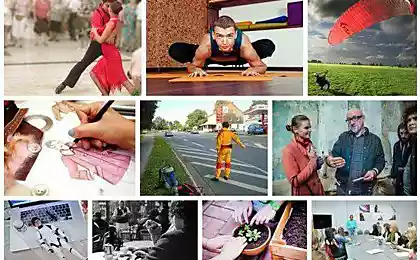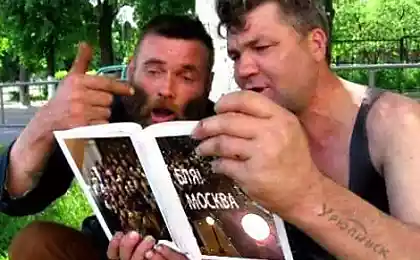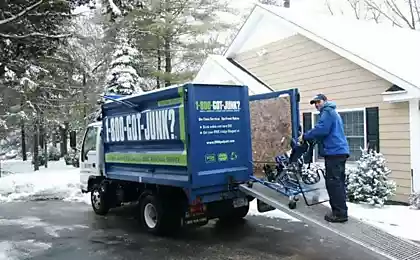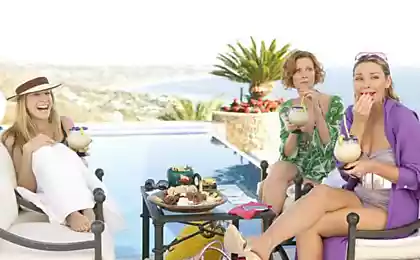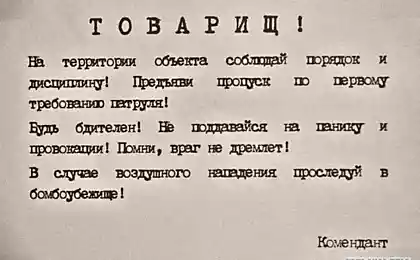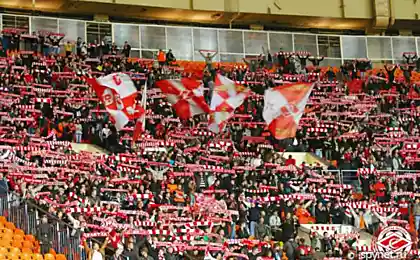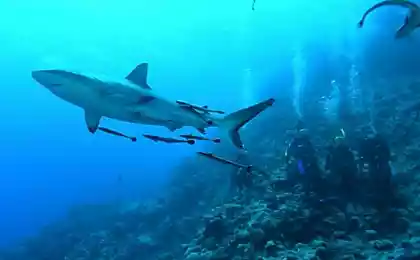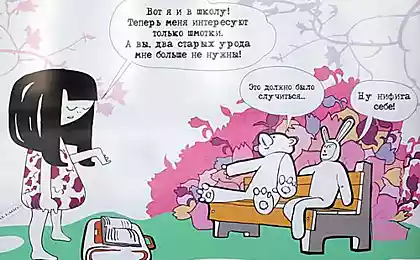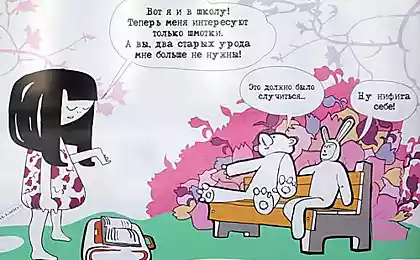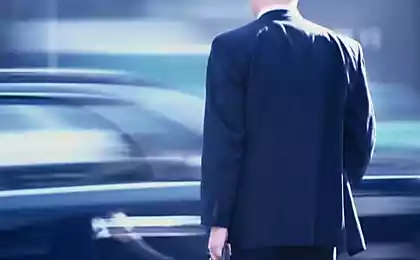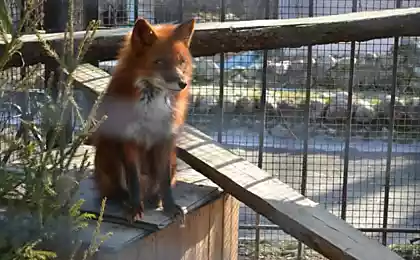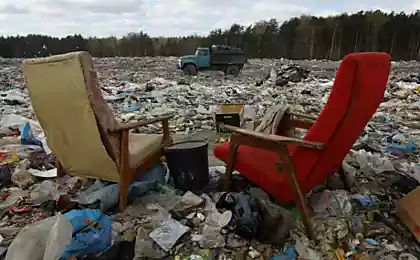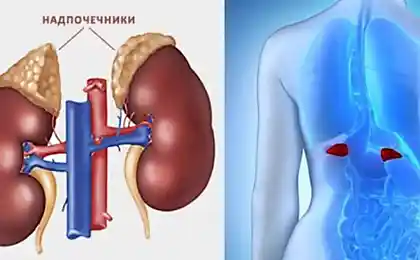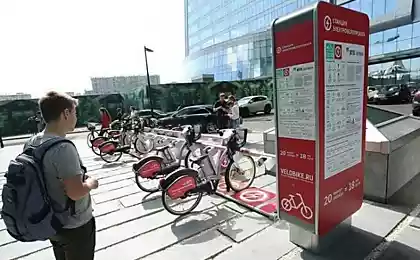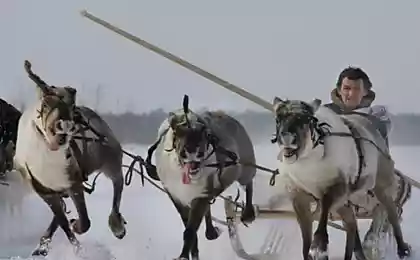548
Muscovites taught the proper handling of resources and waste
Ninety two million eight hundred eighty five thousand seventy seven
A frame from the video youtube.com
Center of Resources Saving at the Flacon design plant in the North of Moscow — the so-called eco-hub that will unite all not indifferent to problems of environmental pollution and unsustainable use of our planet's resources. Focusing both on theory and on practice, the creators of the Center tell the Muscovites, as they can easily change their lives towards a more eco-friendly and economical life. "Entry point" into the world economy of resources is, for example, the workshop "About Waste, the first level".
To collapse the description to Show opisaniyami you care about your dwelling place, you may would like to cease to be a participant in the process of turning it into a landfill, as is happening now everywhere. And this process can be slowed and even stopped. This, among other things, and teach three young girls, which opened two years ago the Center for Saving Resources on the Bottle.
Seminar "About Waste, the first level" is that it may be advisable to visit the interested, but uninformed listener. This seminar, like its sequel, the second level, are held every few months at the Center. It all came know what is happening with production wastes and consumption in our country and in other countries, as well as what you should aspire to rescue his and the next generation from the oceans of debris. Incidentally, the term "garbage" is not used here — "garbage" is something dirty, smelly and nasty, but "waste" is another matter, they can and in processing to deliver, making them a "resource" and returning back into the economy.
The seminar participants learn all the useful and relevant information "first hand" that can be done at home, in the office in the city now, to reduce the load on the environment from their human life. As reported by the seminar Alina Kolevska at the beginning of his entertaining narration, and after showing excerpts from the documentary film about the island of midway (which is located at a distance of thousands of kilometers from the continents, however, incredibly suffering from human waste — the birds eat the pieces of plastic that huge amounts of polluted oceans, and eventually die because of the plastic filling their stomachs): "the Main idea of the lecture is that with junk there are many different problems, but they all have one reason in the world, for the most part, operates the wrong system for the treatment of natural resources and the resulting use of waste".
Garbage is one of the topics that concerns everyone, and everyone faces it daily, but it is preferable not to speak. About her try not to talk about neither politics nor the rank and file officers, nor the businessmen, nor the inhabitants. However, consider the eco-activists need to know about this topic to talk a lot and loudly, otherwise the system does not change.
Waste you can do 3 things: recycle, burn and bury.
All of these actions are already taking place in Russia, and all three exist in an "ideal system", but in very different proportions. Currently, processing is not more than 2% of the Russian debris, burned a little more than 10%, the rest is sent to landfills, legal and illegal. All the garbage is products, the production of which was once spent on natural resources and energy, human labor, and in the end they all amounting to millions of tons per year, is sent to earth, where he will be an unknown amount of time. So isn't it better to deploy the system in another direction — to get out of the garbage all the useful, and the burning and burial to send only what is really logical to burn or to bury? — such questions raise activists in your education centre.
For clarity in their classroom educators use various examples from the life of the waste. First, the walls of the hall is a Museum that is visually clear, which reflect the disposal of various wastes, which also can find a variety of exhibits, ranging from raw material, which becomes plastic as a result of processing — granulate, finishing products made of secondary resources, such as toys and clothes from recycled plastic.
The second part of the exhibition is a showcase, filled with waste collected from one of an ordinary Moscow family within 1 month of the experiment.
The accumulated objects were washed and transferred to the centre where they spread out into different factions, to show people what components can be distinguished in the average trash can and what they can do next. Stopping at each of the waste types for students taking an overview of the problem and its solutions, giving specific advice.
For example, I advise most to give up from plastic is marked with 3 — PVC or polyvinyl chloride, in view of its danger, but also carefully examine the purchased thing before the purchase is made, first, by asking ourselves whether this thing is needed, and secondly, to know exactly what this thing can do after use.
Rise as very remote from the average person (one side) global issues that in the production of aluminum products from primary raw materials produced 9 tons of waste per ton of metal obtained in the process of which contaminates water and air and electricity it takes 95% more than the production of secondary aluminium (which, by the way, as glass can be recycled unlimited number of times), and more close and small, for example, that you just need to choose toilet paper made from recycled materials, not from virgin. By the way, it is impossible not to share the surprise of environmentalists, the fact that someone even may come to mind to produce the product that will be used and discarded half a minute forever, by felling more and more trees.
Also visitors to show the system of recycling organic waste into bio-fertilizer using composting worms, which, feeding on organic matter, as a result of their activity produce bio-humus. Everyone can acquire and settle at home for a few thousand worms in a special house, or to choose another method of composting organic matter, because, contrary to popular belief, organic waste in a dump body, almost not decomposed, as there is no access to oxygen.
On the functioning of the dump say in the beginning of the seminar. On the wall of the Museum there is a picture of a real landfill and the ideal system of waste management. A large part of the legal waste dumps in Russia opened more than 20 years ago, when the necessary technology was unavailable, and nobody cares and not even known. So now and many years later people will have to endure the results of their life that will continue to burn, contaminate ground water and occupy a huge territory.
In addition to eco-lectures at the Centre for almost a year there is a "point of reception of useful things", that is recycled. The main goal of the platform is still educational, but the point is rather optional, it is one of the aspects of our practice of saving resources — everyone can implement separate collection of garbage at home and bring it on the item, the more that the Centre's staff will always help with advice to those who do not know how to collect the garbage at home, and actually, it's not hard. Until recently, point existed solely on a volunteer basis, like the center itself, but now "adopted" the item took one of the firms-producers of secondary raw materials in Moscow, which transports recyclables and every week it is stored at the item more and more, contrary to popular belief that citizens are not interesting separate collection. For less than a year on the item from not indifferent townspeople have collected 5.5 tons of paper and 1.2 tonnes of PET bottles, about 600 kg of other types of plastic, 100 kg of aluminum cans and 7 tons of glass.
Also at the centre there is a shop where you can buy lots of things from friends of the Centre, books and Board games on the subject, eco-friendly household chemicals and cosmetics, stationery made from recycled paper and even unusual items.
At the entrance is "bookcrossing", where you can leave or take a book or magazine, saving them from landfill or recycling.
Centre activities are for any taste and interest. For example, every Wednesday, classes, Vegetarian school, where they teach "the most delicious way to save the planet", and on Tuesdays — School eco-life, where only 6 sessions can be fully ecologyinvest themselves and their lives. Also schedule frequent master classes and workshops, film screenings, workshops and seminars volunteer teams, and just meeting for the sake of meetings — to communicate with interesting people on burning issues. Admission is free, but all visitors are asked to leave a donation in the box, to be able to continue to pay rent. Since the establishment of the centre in September 2012 he went through more than 5,000 people who attended almost 500 events.
Employee conduct and activities for children for its unique program, teaching young generation from childhood to proper habits of life on planet Earth. The full schedule can be found on the website centrecon.ru where you can choose the event to their liking and start the path to a green and clean future is now.
Source: www.ridus.ru
Cheap flights into space become even closer. In the future - Mars
How to choose the right plants for North Windows and other sides of the world
